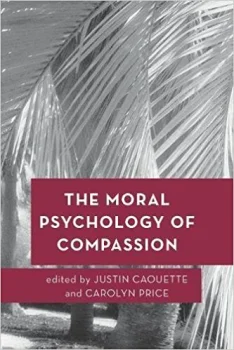Our friend Ted Shear (Queensland) is hoping to organize a collection of short video lectures by philosophers aimed at a general audience. This seems like a great idea, and if you’re at all interested, read on.
UPDATE: We want to make it very clear that an important part of this project will to be to keep the topics and content as non-partisan and apolitical as possible, so that it doesn’t look like any particular ideology is being supported, either implicitly or explicitly.
What follows is Ted’s post from Facebook, lightly edited for clarity.
Philosophers: I am considering putting together a series of youtube video lectures aimed at providing some basic useful information for the public that may be useful in the current political climate. I could use your help!
Here is the idea:
- 5-10 minute lectures offering straightforward explanations of important and useful distinctions that are relevant to the individual or social aspects of rational inquiry.
- Content should be aimed at anyone interested, but should not do injustice to complex issues.
- Topic should be *extremely* limited in scope. It is clear to me that important information can be lost when we try to convey too much at once.
- Lectures should offer a bridge towards more sophisticated issues in the
academic literature. So, if presenting a basic distinction that is relevant to an important body of sophisticated literature, provide citations for *slightly* more in depth discussions of that literature that remain mostly accessible to the public (think Philosophy Compass, IEP, or certain SEP articles).
For several reasons, I would like to involve as many people as possible in the generation of this content. Here’s why:
1) The more different people involved in this, the greater its visibility will be. Think: when each of us posts our own video to Facebook (because, c’mon, you totally want to share it with your friends anyway), the more people outside of the world of philosophy will find these videos.
2) The more different people involved in this, the more credibility it will demonstrate. Not only because I would hope to wrangle some senior people with fancy titles into it (as well as those at other stages), but also because it will come across as more representative of the consensus of the community of experts rather than the whims of any individual.
3) The more different and diverse faces we have will outwardly display that there is no good reason why expertise about the norms of rationality is limited to individuals of a particular background.
4) Having folks of different backgrounds will help protect against any possible tendency to ignore issues as a result of our implicit biases, to attend to topics that are only interesting and important to individuals of a particular background, etc.
5) Working collaboratively will help limit the amount of work that any one person has to do. (That is, I think that this should be a thing, but holy crap that sounds like a lot of work for one person with limited time to do.)
I’d like to largely leave the choices about what gets covered up to contributors, but here is a list of the sorts of things that I think would be useful to discuss:
- The distinction between normative and descriptive claims. (If you watched the Betsy DeVos hearing, then you probably noticed how she didn’t seem to grasp the is/ought distinction at all. When asked, “Should it be that x?”, she would reply, “Well, it is x, so […]”. At which point any philosopher groaned and had another drink.)
- The role of epistemic questions in institutions that the public has high regard for (i.e. that science is an epistemic activity that is guided by a certain set of epistemic norms, or that the evaluation of evidence is an essential aspect of our legal system, or that evaluating evidence plays a central role in medical diagnoses, or that making sound financial investments requires relying on reliable processes, etc.)
- Why experts should be held in high regard on the topics of their expertise
- How to think about sources of evidence and relevant factors for assessing their reliability
- Why it matters that our decisions be based on justified beliefs
- How to regard others in cases of disagreement
- How and why our choices of topics that we voice our opinions about can be political (i.e. it is not always appropriate to assert things that are true because making those assertions can harm others)
- Emphasizing that it is acceptable (and indeed rationally required) to suspend judgment about things which we are not well informed
- What is abductive reasoning is, and how should we assess alternative explanations. (Think of all of those times that people respond to a deeply plausible explanation by merely pointing out that there are other possible explanations without appreciating that those explanations are significantly less plausible.)
- The different varieties of normativity and the possibility that different normative domains may conflict. (Think: cases where the rational norms and moral norms come apart or where legal norms and moral norms come apart)
So, if you have ideas about how to proceed or would like to contribute in any way at all, please let me know either by commenting on this post or e-mailing me directly at t.shear[at] uq.edu.au!



Justin Caouette
January 23, 2017
This is a fantastic idea. I’m glad Ted is spearheading this! I hope other philosophers pitch in to help.
LikeLike